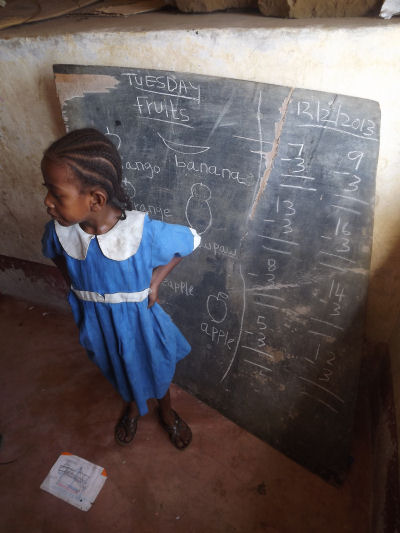|
Strona archiwalna!
Ta strona zawiera treści archiwalne, które nie były zmieniane po 23 września 2019 r. Jeśli chcesz wiedzieć więcej zapoznaj się z deklaracją dostępności
|
||||||
archiwum
 2006 2006
 2008 2008
 2010 2010
 2012 2012
 2014 2014 |
||||||

| ||||||
 |
 |
|||||

|
||||||
| strona główna założenia regulamin kalendarium wskazówki pobierz jury rejestracja zgłoszone projekty galeria gallery | archiwum kontakt | |||||
Description popularizing the research project Early morning, Central European Time. In rooms of most pupils alarm clocks start ringing. Time for school. Most pupils associate the place with ten months of torment crowned with longed-for summer holidays. Despite all their rebellious nature, they soon get used to the weeklong pattern of school bells, homework and extra classes. They can see that their siblings, neighbours and peers live the same. They have heard their parents' and grandparents' school stories and they are perfectly aware they will tell similar stories to their own children when they are of school age. Most often they have no idea to what extent going to school organizes their world, puts it in the frames and prepares them for the adult life. An ideal world without school exists only in dreams, as we know education means opportunities. Abstract The area of my scientific interest is related to Wasini Island's community and the Maasai community in Amboseli, who for several years have been building their village. The Maasai were formerly nomads and hunters, but the current changes forced them to alter their lifestyle and settle down in one place. Wasini Island's community and the Maasai people I research for several years have been attempting to cultivate land. Some of them have been trying to work as local guides or guards. Few managed to get employed in tourism. The demand for employment in this sector is enormous, but these people have no education and they lack skills that would qualify them for this type of occupation. Thus, founding a school, obtaining education and mastering new forms of work constitute a chance for them to continue their lives in their ancestral environment. An increasing number of villagers from the outskirts of Amboseli National Park send their children to school in hoping to improve their living conditions and not to move out to distant and unfamiliar areas of Kenya, where life is not necessarily easier. Launching a "mini computer lab" in the Maasai school became a practical purpose of the projects "Pomagam dzieciom w Afryce - Szkoła pod baobabem" (I help children in Africa - School under a baobab tree). Their scientific objective was to provide answers to questions related to the application of the European theoretical and practical knowledge in the creation and operation of a school within a community which has never previously been in contact with any educational institutions. The enterprise involves academics from Polish and Kenyan universities (University of Szczecin, University of Silesia in Katowice, Kenyatta University, Nairobi and Pwani University in Kilifi Kenya, Mombasa).The main research problem was formulat-ed: How is the educational and didactic process organised on five continents? Also, a series of detailed problems were specified, several of which relate to the system of education in Kenya and the use of ICT within and outside school environment. The research which is being implemented in Kenya revolves around the question: What is the role of Information and Communications Technology in the learning/teaching processes at school on Wasini Island and in a Maasai village? Over the past several years, Information and Communications Technology has become an important element of contemporary school culture. Considering the ongoing economic and civilizational changes in the world, it appears legitimate and even desirable to embark on initiatives related to dissemination of education by means of the new media in developing countries. Properly used computers, with appropriate educational programs, can efficiently and effectively support the process of teaching and learning. Properly selected teaching media provide for a wide range of customisation of the learning process in their own right, i.e. learning that takes into account the specific developmental potential of every human being. Major events related to the project: I help children in Africa - School under a Baobab Tree 2012 - 2014 . The first visit to Kenyan schooling institutions - Amboseli and Wasini (meeting teachers, observation of selected classes, contact with pupils, familiarisation with the organisation of school activities, initiation of e-mail correspondence with teachers. . Installation of photovoltaic panels - electricity start-up . Launching a "mini computer lab" . Installation of educational computer programs . ICT training and workshops for teachers . Providing school supplies for pupils and teachers . Initiation of scientific contacts with academics from the University of Nairobi . Providing mobile phones for teachers . Training, seminars and workshops with teachers . Signing of a land donation act for the construction of the school for children on the island of Wasini 2015 and 2016 . Providing numerous and diverse teaching aids, school supplies . Regular visits of academics from Polish universities - scientific/research seminars . Providing bicycles for the Amboseli teachers to enable efficient transportation between schools . Signing bilateral agreements with universities from Nairobi and Mombasa.
|


|
|||||












